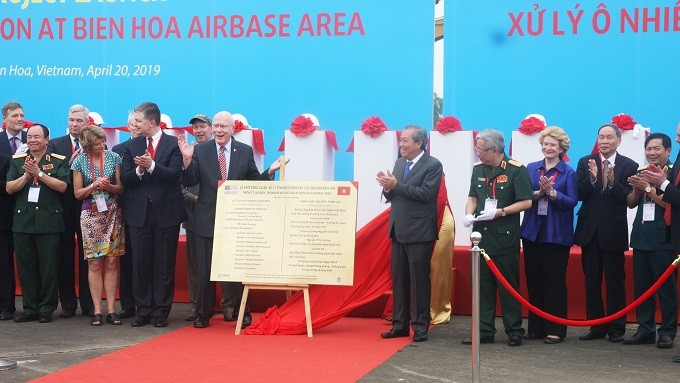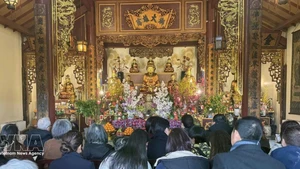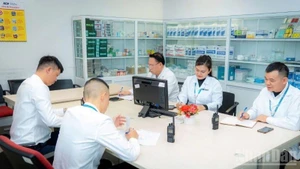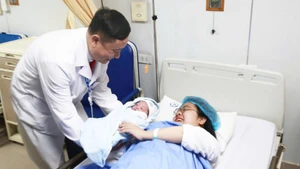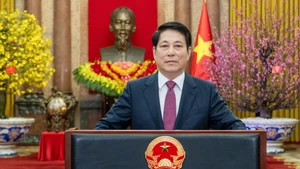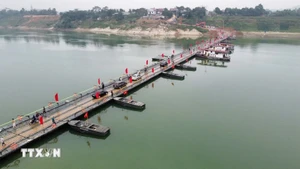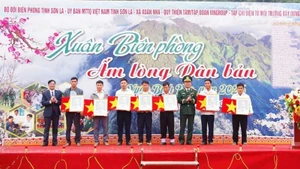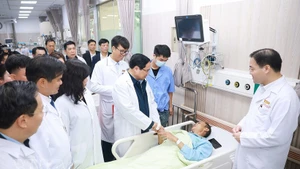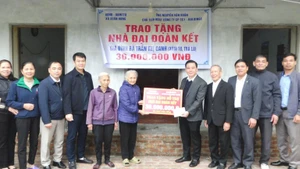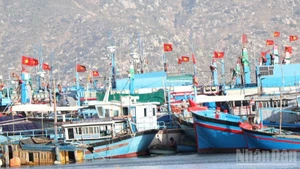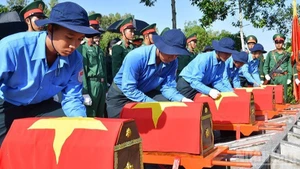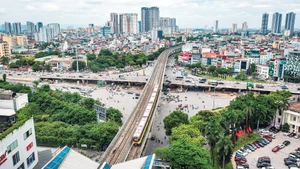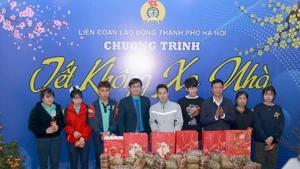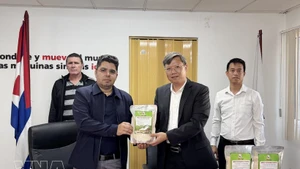The launch ceremony, hosted by the US Agency for International Development (USAID) and the Vietnam Air Defence-Air Force Service, was attended by Permanent Deputy Prime Minister Truong Hoa Binh, Vice Chairman of the US Committee on Appropriations Senator Patrick Leahy, and US Ambassador to Vietnam Daniel Kritenbrink.
According to the Vietnamese Defence Ministry, Bien Hoa airport is one of the areas with the most serious dioxin contamination, as its 52 hectares with over 500,000 cubic metres of soil need to be cleansed. Vietnamese and US agencies estimate that the workload needs over US$390 million.
USAID said it worked with Vietnam’s functional agencies finalised the assessment of dioxin contamination at Bien Hoa airport in 2016. Following the assessment, USAID signed an agreement on the implementation of the first five-year phase of a project to resolve dioxin contamination at Bien Hoa airport with the Ministry of Defence of Vietnam in early 2018. The agency committed a funding of USS$183 million for the project, which is scheduled to last 10 years using the remediation methods used at Da Nang airport.
Addressing the event, Permanent Deputy PM Truong Hoa Binh stated although the war ended years ago, dioxin consequences still linger, leaving huge impact on human life and the environment.
Statistics show around 4.8 million Vietnamese people were exposed to Agent Orange/dioxin, over 3 million of whom are Agent Orange/dioxin victims, and the toxic chemical also left effect on the third generation, the deputy PM said.
The Vietnamese Party and Government always define the settlement of post-war toxic chemical consequences as an urgent, humanitarian task, helping to protect the people’s health, ensure environmental safety and create conditions for sustainable socio-economic development, he affirmed.
Politburo member Binh also highlighted the close coordination between relevant agencies of Vietnam and the US in activities to survey, assess and resolve dioxin contamination, and implement projects on healthcare and functional rehabilitation for people with disabilities in Vietnam.
He thanked the US congress, government and people, especially Senator Patrick Leahy, for actively working with Vietnam in addressing Agent Orange/dioxin consequences over the past years, asking the senator to continue supporting and mobilising the US congress, government and people to strengthen cooperation and implement more projects to meet the legitimate needs of many Vietnamese people, for the common interests of the two countries, contributing to facilitating the Vietnam-US comprehensive partnership in the future.
